 W
WConstantin Argetoianu was a Romanian politician, one of the best-known personalities of interwar Greater Romania, who served as the Prime Minister between 28 September and 23 November 1939. His memoirs, Memorii. Pentru cei de mâine. Amintiri din vremea celor de ieri —a cross section of Romanian society, were made known for the sharp critique of several major figures in Romanian politics.
 W
WIoan Bălan was a Romanian bishop of the Greek-Catholic Church.
 W
WPetre Bejan was a Romanian engineer and politician.
 W
WConstantin Constantin Ion Brătianu, also known as "Bebe" was a liberal Romanian politician.
 W
WDinu Brătianu, born Constantin I. C. Brătianu, was a Romanian politician who led the National Liberal Party (PNL) starting in 1934.
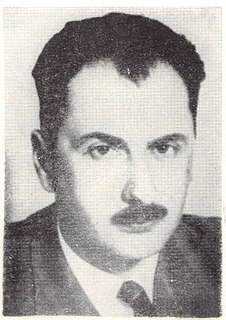 W
WGheorghe (George) I. Brătianu was a Romanian politician and historian. A member of the Brătianu family and initially affiliated with the National Liberal Party, he broke away from the movement to create and lead the National Liberal Party-Brătianu. A history professor at the universities of Iași and Bucharest, he was elected titular member of the Romanian Academy. Arrested by the Communist authorities in 1950, he died at the notorious Sighet Prison.
 W
WVictor Cădere (1891–1980) was a Romanian jurist, administrator and diplomat. Born in Cluj (at that time in Austria-Hungary he got a doctorate in law.
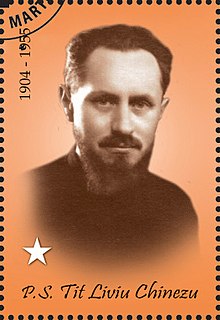 W
WTit Liviu Chinezu was a Romanian bishop of the Greek-Catholic Church.
 W
WHenri Cihoski was a Romanian lieutenant-general during World War I, and Minister of War from 1928 to 1930.
 W
WDaniel Ciugureanu was a Romanian politician from Bessarabia, deputy in Sfatul Țării from Chisinau, Prime minister of the Moldavian Democratic Republic from 29 January [O.S. 16 January] 1918 - 21 April [O.S. 8 April] 1918, Minister for Bessarabia in four Romanian Governments, Deputy and Senator, Vice-President of the Chamber of Deputies, Vice-President and President of the Senate of Kingdom of Romania.
 W
WCorneliu (Cornel) Coposu was a Christian Democratic and liberal conservative Romanian politician, the founder of the Christian Democratic National Peasants' Party, the founder of the Romanian Democratic Convention, and a political detainee during the communist regime. His political mentor was Iuliu Maniu (1873–1953), the founder of the National Peasant Party (PNȚ), the most important political organization from the interwar period. He studied law and worked as a journalist.
 W
WAnton Durcovici was a Romanian prelate of the Roman Catholic Church and the Bishop of Iaşi from 1947 until his death. Durcovici was a victim of Romania's Communist regime, under which he was imprisoned; he died while in jail. He was known for being a zealous bishop who visited each parish within the confines of his diocese and known for his efforts in preaching the Gospel to all that he could. He likewise was known for his staunch commitment to the values of the Gospel and for his allegiance to the Church which led to his false arrest and imprisonment at the hands of the communist regime. Durcovici was a professor of seminarians and taught his students subjects such as canon law. His zeal as a priest led to his appointment in Bucharest as a rector for seminarians and his renown in Romania led to his episcopal appointment as a bishop.
 W
WBlessed Valeriu Traian Frențiu was the Bishop of the Eparchy of Oradea Mare of the Romanian Greek Catholic Church from 1922 to 1952. His beatification occurred on 2 June 2019.
 W
WIon Gigurtu was a far-right Romanian politician, Land Forces officer, engineer and industrialist who served a brief term as Prime Minister from 4 July to 4 September 1940, under the personal regime of King Carol II. A specialist in mining and veteran of both the Second Balkan War and World War I, he made a fortune in interwar Greater Romania. Gigurtu began his career in politics with the People's Party (PP) and the National Agrarian Party, moving closer to the far right during the 1930s, and serving as Minister of Industry and Commerce in the cabinet of Octavian Goga. Shortly after the start of World War II, Gigurtu was affiliated with King Carol's National Renaissance Front, serving as Public Works and Communications Minister and Foreign Minister under Premier Gheorghe Tătărescu, before the territorial losses incurred by Romania in front of the Soviet Union propelled him as Tătărescu's replacement.
 W
WConstantin C. Giurescu was a Romanian historian, member of the Romanian Academy, and professor at the University of Bucharest.
 W
WVictor Gomoiu was a Romanian surgeon, anatomist, folklorist and medical historian, who served as Minister of Health and Social Protection in 1940. Noted before 1910 for his work in descriptive surgery and pathology, focusing on the treatment of tuberculosis, genital diseases and tumors, he soon became one of the main contributors to medical historiography and bibliography. He founded several hospitals and edited medical journals, setting up a collection of medical instruments which became the basis of a national museum in Craiova. He became a professor at the University of Bucharest, an expert for the League of Nations, and, after distinguished service in World War I, a recipient of the Legion of Honor; additionally, he served for 22 years as president of the International Society for the History of Medicine, of which his wife Viorica was also an active member.
 W
WPantelimon "Pan" Halippa was a Bessarabian and later Romanian journalist and politician. One of the most important promoters of Romanian nationalism in Bessarabia and of this province's union with Romania, he was president of Sfatul Țării, which voted union in 1918. He then occupied ministerial posts in several governments, following which he underwent political persecution at the hands of the Communist régime and was later incarcerated in Sighet prison.
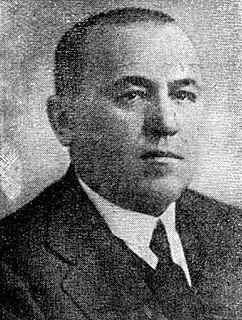 W
WEmil Hațieganu was a Romanian politician and jurist, a prominent member of the Romanian National Party (PNR) and of its successor, the National Peasants' Party (PNȚ); he was physician Iuliu Hațieganu's brother. Before his arrest, he was an honorary member of the Romanian Academy.
 W
WIuliu Hossu was a Romanian Greek-Catholic prelate who served as the Bishop of Cluj-Gherla. Pope Paul VI elevated Hossu to the rank of cardinal in pectore, that is, secretly, in 1969 but did not publish his appointment until after Hossu's death. The Communist authorities arrested Bishop Hossu on 28 October 1948. From 1950 to 1955 he was detained as political prisoner at the Sighet Prison. He spent the rest of his life under house arrest and died in 1970.
 W
WAlexandru I. Lapedatu was Cults and Arts and State minister of Romania, President of the Senate of Romania, member of the Romanian Academy, its president and general secretary.
 W
WIlie Lazăr was a Romanian jurist and politician, a leading member of the National Peasants' Party in the interwar period and the right-hand man of Iuliu Maniu.
 W
WIoan Lupaş was a Romanian historian, academic, politician, Orthodox theologian and priest. He was a member of the Romanian Academy.
 W
WIuliu Maniu was an Austro-Hungarian-born lawyer and Romanian politician. He was a leader of the National Party of Transylvania and Banat before and after World War I, playing an important role in the Union of Transylvania with Romania.
 W
WMihail Manoilescu was a Romanian journalist, engineer, economist, politician and memoirist, who served as Foreign Minister of Romania during the summer of 1940. An active promoter of and contributor to fascist ideology and anti-Semitic sentiment, he was a financial backer of the Iron Guard in the late 1930s. His corporatist ideas influenced economic policy in several countries during the 1930s, particularly in Brazil.
 W
WGheorghe Mihail was a Romanian career army officer.
 W
WIon Mihalache was a Romanian agrarian politician, the founder and leader of the Peasants' Party (PȚ) and a main figure of its successor, the National Peasants' Party (PNȚ).
 W
WValeriu A. Moldovan was an Austro-Hungarian-born Romanian lawyer and politician.
 W
WIon I. Nistor was a Romanian historian and politician. He was a titular member of the Romanian Academy from 1915 and a professor at the universities of Cernăuți and Bucharest, while also serving as Minister of State for Bukovina, Minister of Public Works, Minister of Labor, and Minister of Religious Affairs and the Arts with a number of governments from 1918 to 1940.
 W
WIon Gheorghe Pelivan was a Romanian politician.
 W
WConstantin Titel Petrescu was a Romanian politician and lawyer. He was the leader of the Romanian Social Democratic Party.
 W
WIoan Popovici was a Romanian general assigned to the general staff headquarters, during World War I. He attended the Școala Militară de Infanterie și Cavalerie in Bucharest from 1885 to 1887. Afterward he rose through the ranks until he became a brigadier general in 1916 as World War I was raging, engulfing Romania. He was known as "Epure" to distinguish him from another Romanian general with the same name.
 W
WIoan Mihail Racoviță was a Romanian general during World War II, and Minister of Defense in the aftermath of King Michael's Coup of August 1944.
 W
WIoan Rășcanu was a Romanian general during World War I. He held the post of Minister of War from September 27, 1919 to December 16, 1921. After entering politics, he was elected deputy in Parliament, and served as Mayor of Vaslui (1938–1942) and Bucharest (1942–1944). Arrested in 1947 by the early communist regime, he died several years later at Sighet Prison.
 W
WFather Alexander Ratiu was a Romanian-American priest of the Romanian Greek-Catholic Church. While serving in his family's country of origin, he became a political prisoner, and later, after his release, an author.
 W
WAlexandru Rusu was a Romanian bishop of the Greek-Catholic Church. One of twelve children born to a priest in Șăulia Commune, Mureș County, he was himself ordained a priest in 1910. Rusu was ordained Bishop of Maramureş in 1931.
 W
WNicolae Samsonovici was a Romanian general. In the 1930s, he served as Chief of the General Staff and as Defense Minister.
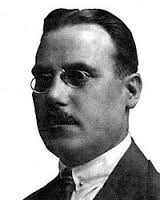 W
WIoan Gheorghe Savin was a Romanian theologian, within the Romanian Orthodox Church. A professor and a widely published writer, he spent several years in prison under the early communist regime.
 W
WJoseph Schubert was a Romanian cleric and a titular bishop of the Roman Catholic Church.
 W
WFlorian Ștefănescu-Goangă was a Romanian psychologist. The son of a peasant family from Curtea de Argeș, he attended the University of Bucharest, followed by doctoral studies in psychology at Leipzig University under Wilhelm Wundt. Following World War I, he became a professor at the newly founded University of Cluj, emerging as a pioneer in experimental psychology in Romania over the ensuing decades. He led the university between 1932 and 1940, also serving in government for a time. An assassination attempt against him in 1938 precipitated the killing of Iron Guard leader Corneliu Zelea Codreanu. After 1945, he initially worked with the new communist government, but his insistence on an apolitical teaching environment ultimately saw him held at Sighet prison from 1950 to 1955, and he died three years after his release.
 W
WVasile Stoica was a Romanian political writer, diplomat, and close assistant of European statesmen Tomáš Masaryk and Ion I.C. Brătianu.
 W
WIoan Suciu was a Romanian bishop of the Greek-Catholic Church, born into a clerical family in Blaj.
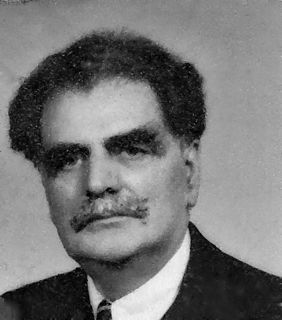 W
WGheorghe Tașcă was a Romanian economist, lawyer, academic, diplomat, and politician. He was a corresponding member of the Romanian Academy.
 W
WGheorghe I. Tătărescu was a Romanian politician who served twice as Prime Minister of Romania, three times as Minister of Foreign Affairs and once as Minister of War (1934). Representing the "young liberals" faction inside the National Liberal Party (PNL), Tătărescu began his political career as a collaborator of Ion G. Duca, becoming noted for his anticommunism and, in time, for his conflicts with the PNL's leader Dinu Brătianu and the Foreign Minister Nicolae Titulescu. During his first time in office, he moved closer to King Carol II and led an ambivalent policy toward the fascist Iron Guard and ultimately becoming instrumental in establishing the authoritarian and corporatist regime around the National Renaissance Front. In 1940, he accepted the cession of Bessarabia and Northern Bukovina to the Soviet Union and had to resign.